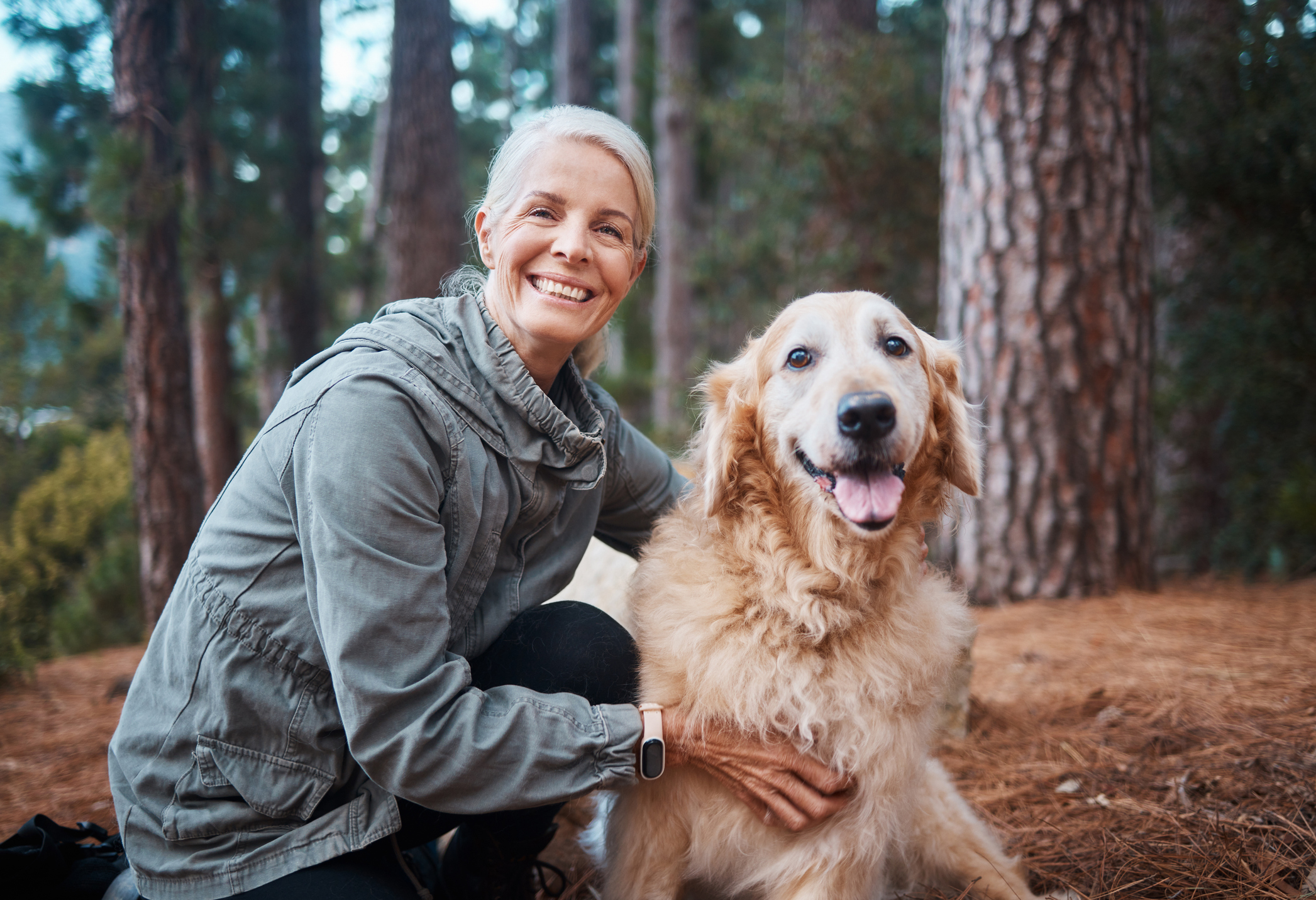Get Easy Health Digest™ in your inbox and don’t miss a thing when you subscribe today. Plus, get the free bonus report, Mother Nature’s Tips, Tricks and Remedies for Cholesterol, Blood Pressure & Blood Sugar as my way of saying welcome to the community!
The strange cancer risk we share with our pets

Pets bring enjoyment and fulfillment to our everyday lives and have been shown to help us live healthier and longer.
It’s why we go out of our way to return the favor, giving our dogs the right diet, good exercise and the care they need to remain in our lives as long as possible.
It’s also why we need to be aware of the risks they face, especially when it comes to cancer.
That’s because according to the American Kennel Club, one in three dogs will develop cancer in their lifetime, with cancer reigning as the leading cause of death for our furry friends.
And sadly, there is an additional factor to be aware of that can increase our pets’ cancer risk — one that is not only strange, but strangely enough, they share with us.
Cancer risk by size
A study from researchers at the University of California Riverside has found that like us, dogs experience a higher cancer risk with increased size.
In fact, research on humans has shown that tall people get the short end of the stick when it comes to cancer, with an 11 to 13 percent higher risk of the disease for every 3.9 inches in height.
After surveying dog mortality rates with three different data sets, the researchers found the smallest dogs, including Pomeranians, miniature pinschers, shih tzus and chihuahuas have about a 10 percent chance of dying from cancer.
By comparison, many relatively large dogs, such as Burmese mountain dogs, have more than a 40 percent risk of cancer death.
Now there were some exceptions in the study…
The team discovered that flat-coated retrievers had the highest mortality from cancer, getting a type of sarcoma with higher frequency than they should have for their size.
And Scottish terriers were far more prone to cancer than other small dog breeds.
Additionally, the team found that very large dogs, like Great Danes, have less cancer than medium-sized dogs. However, they say that this is due to their shorter life expectancy.
“For every pound increase in typical breed size you lose about two weeks of life. A very big dog, you’re lucky if they live past nine years, whereas small dogs can go about 14,” said study author Leonard Nunney.
And as we all know, while cancer can start early, by and large, it’s a disease associated with aging. So a reduced lifespan means a reduced risk of cancer.
According to the researchers, it all boils down to this — larger size and longer lives offer more opportunities for cells to mutate and cancer to take hold.
Cancer prevention
You’re probably asking how you can prevent cancer in your dog.
And the answer is much like what we’re supposed to do ourselves to stay healthy and keep cancer at bay.
This includes:
- Getting good nutrition – A well-balanced diet is vital in the battle against cancer. And for both dogs and humans this can include getting plenty of nutrients from healthy greens that are packed with antioxidants to stop cancer growth. You can easily find a greens supplement for your dog online or in your local pet store.
- Focusing on fitness – Exercise and weight management are important for cancer prevention in both humans and their pets. While overweight dogs are more likely to develop bladder or mammary cancers, studies have shown that in humans belly fat fuels cancer growth.
- Having regular dental checkups – Oral care and cancer prevention go hand-in-hand for us and our furry friends. Seeing your dentist (or your pet’s) can ensure tumors are caught early when they are more treatable.
Editor’s note: Discover how to live a cancer prevention lifestyle — using foods, vitamins, minerals and herbs — as well as little-known therapies allowed in other countries but denied to you by American mainstream medicine. Click here to discover Surviving Cancer! A Comprehensive Guide to Understanding the Causes, Treatments and Big Business Behind Medicine’s Most Frightening Diagnosis!
Sources:
Study reveals cancer vulnerabilities in popular dog breeds — EurekAlert!
Cancer in Dogs: What to Know — American Kennel Club
Everyday Ways to Reduce Cancer Risk for Your Dog — American Kennel Club












